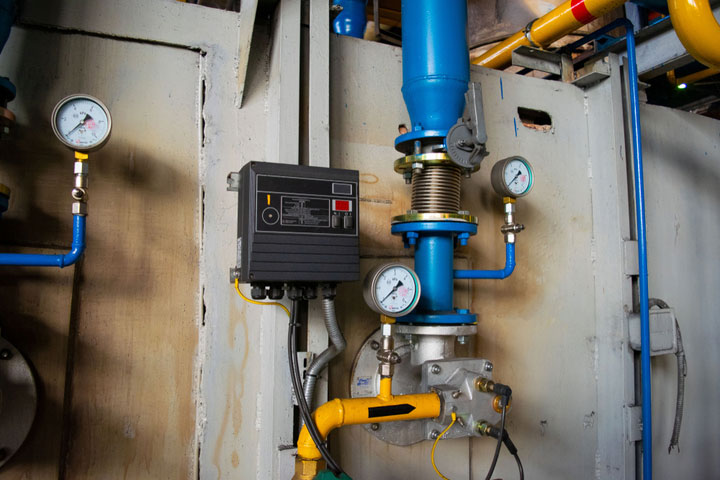
In the intricate and high-stakes arena of industrial operations, particularly those involving boilers, furnaces, and other combustion equipment, safety and efficiency are paramount. A Burner Management System (BMS) plays a crucial role in ensuring these criteria are met. This comprehensive system is designed to enhance safe operation, achieve regulatory compliance, and optimize process performance. This article delves into the importance of Burner Management Systems, exploring their functionality, benefits, and essential features within industrial applications.
Understanding Burner Management Systems
A Burner Management System is an automated control system that ensures safe start-up, operation, and shutdown of combustion units. It is primarily used in industries such as oil and gas, power generation, and any sector where burners are integral to the process operations. The core purpose of a BMS is to provide systematic control and protection, ensuring that burners operate safely at all times.
Key Functions of a Burner Management System
- Safe Ignition and Shutdown: One of the primary functions of a BMS is to manage the sequence of burner ignition and the safe shutdown procedures. This includes purging of combustion chambers to clear any combustible gases and ensuring the proper sequence is followed to avoid fuel accumulation, thus preventing potential explosions.
- Flame Monitoring and Control: BMS systems continuously monitor the flame status and characteristics. If the flame goes out unexpectedly or fails to ignite, the BMS detects this and takes immediate corrective action, such as shutting off the fuel supply to prevent unburned fuel accumulation.
- Interlocks and Safety Checks: Various safety interlocks are integral to a BMS to ensure that all system components are in the correct state before the burner can operate. These interlocks might include checks for proper fan operation, open fuel valves, and correct operational pressures and temperatures.
- Data Recording and Fault Diagnosis: Modern BMS solutions are equipped with data logging features that record operational data and any fault conditions. This capability not only aids in troubleshooting but also helps in optimizing burner operation and scheduling maintenance.
- Communication with Plant Control Systems: A BMS typically integrates with broader plant control systems, allowing for centralized monitoring and control. This integration ensures that the burner operations are aligned with other processes within the facility.
Benefits of Implementing a Burner Management System
- Enhanced Safety: The foremost advantage of a BMS is the increased safety it provides. By automating critical checks and actions, the system reduces the likelihood of human error, which can lead to accidents and unplanned downtime.
- Regulatory Compliance: Regulatory standards for safety and emissions in industrial environments are stringent and non-negotiable. A BMS helps facilities comply with these regulations by maintaining precise control over burner operations and ensuring all safety protocols are followed.
- Operational Efficiency: By optimizing the combustion process, a BMS can significantly improve the efficiency of burner operations. This not only reduces fuel consumption but also minimizes wear and tear on the equipment, thereby extending its lifespan.
- Reduced Maintenance Costs: Automated systems like a BMS facilitate proactive maintenance strategies. By continuously monitoring system performance and logging data, it becomes easier to predict when maintenance should be performed, thus avoiding costly emergency repairs and downtime.
- Environmental Benefits: Efficient combustion leads to reduced emissions. A BMS ensures that burners operate within their optimal combustion parameters, thereby minimizing the release of harmful pollutants.
Critical Features to Consider in a Burner Management System
When integrating a BMS, certain features are essential for effective operation:
- Modularity and Scalability: The system should be flexible enough to adapt to different sizes and types of burners and scalable to accommodate future expansion.
- User-Friendly Interface: Operators should find the system intuitive and straightforward to use, with clear displays and easy-to-navigate controls.
- Reliability and Durability: Given the harsh industrial environments in which these systems operate, reliability and the ability to withstand tough conditions are crucial.
- Advanced Diagnostic Tools: The system should include advanced diagnostic capabilities to facilitate quick identification and resolution of issues.
Conclusion
In conclusion, Burner Management Systems are indispensable in modern industrial settings. They significantly enhance operational safety, efficiency, and compliance with environmental and safety regulations. As industries continue to focus on sustainability and safety, the role of advanced systems like BMS in managing critical operations will only grow in importance. By investing in a high-quality BMS, industrial facilities can ensure they not only meet current operational demands but are also prepared for future challenges.